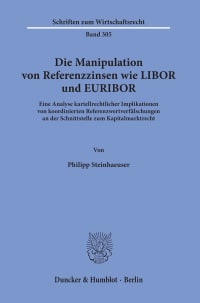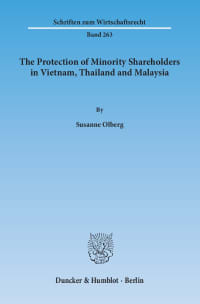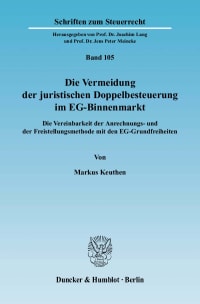Herausforderungen bei Doppelbesteuerungsabkommen zwischen Industrie- und Schwellenstaaten
Das Prinzip der staatlichen Leistungsfähigkeit am Beispiel des DBA-Vietnam
Challenges of Double Tax Treaties between Industrialized and Emerging Countries. The Principle of State Performance using the Example of the Double Taxation Treaty between Germany and Vietnam
Schriften zum Steuerrecht (SSR), Volume 141
2019. 6 Tab., 5 Abb.; 235 S.
Available as
89,90 €
89,90 €
111,90 €
Shopping Cart





